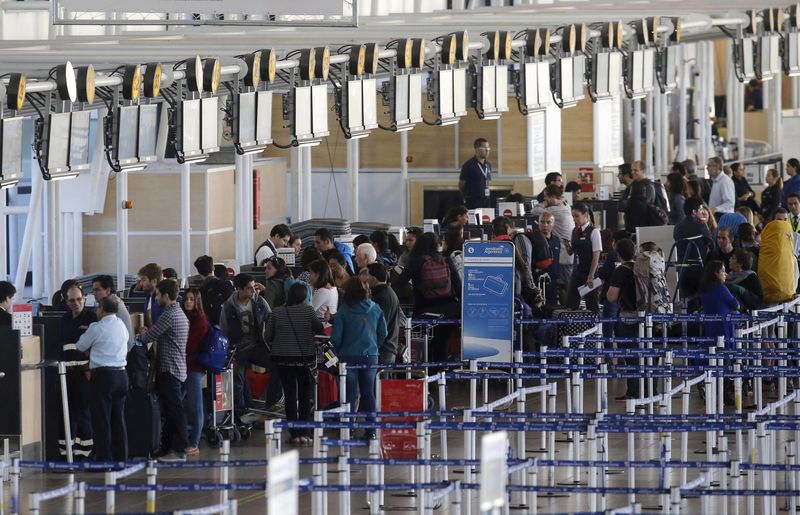SANTIAGO (Reuters) - Ten of Chile's airports remained closed on Saturday as striking workers tied to the civil aviation authority and officials failed to reach an agreement, with the outlook for Sunday not looking much better.
LAN, Chile's flagship airline and part of LATAM Airlines, has already been forced to cancel 200 domestic flights in the three days since the strikes began, the company said. The work stoppage, which was initially set to only last 48 hours, has already stranded thousands of passengers in the run-up to the Christmas holiday.
"LAN informs its passengers that if the strike by workers at Chile's civil aviation authority is extended, the company will have to continue without operations at 10 airports, partially flying in the rest of the country's airports," the carrier said in a statement.
Negotiations between the striking workers and government officials were not held on Saturday, and contingency plans were being prepared for the strike to spill over into Sunday, the Defense Ministry told Reuters.
"At most there have been some phone calls, but they have not sat at the negotiating table ... the strike is indefinite and will last until a solution is found," a spokesman at the ministry said.
Flights were still being operated to and from the capital, Santiago, and the cities of Iquique, Antofagasta (L:ANTO), Calama, Temuco and Punta Arenas.
Chile's Air Force said it was sending planes to Easter Island to supply it with food and provisions, as well as creating an "air bridge" between Puerto Montt and the isolated southern city of Balmaceda.
"The door to dialogue remains open, we have not closed any doors. We have told (the striking workers) that we are absolutely willing to resolve this," said Defense Minister Jose Antonio Gomez.
In September, a 24-hour strike stranded thousands of travellers and created long lines at airports after a majority of workers affiliated with the DGAC, or civil aviation authority, went on strike to demand improved benefits and working conditions.

After two months of negotiations, DGAC workers, which includes air traffic controllers, said this week that they had rejected the government's proposal for a state subsidy to improve their pensions.